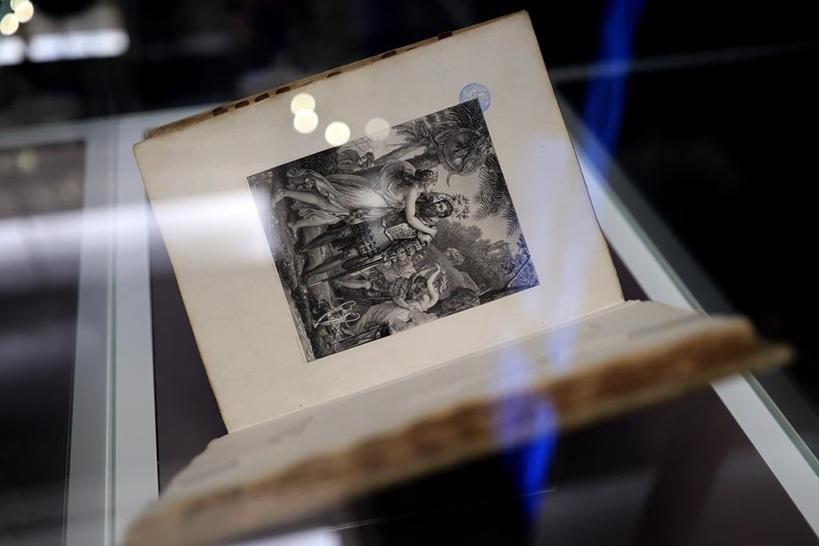Africa-Press – Mozambique. Mozambique will host, from June 6 to 10, the second Camões Half Millennium International Congress to commemorate the 500th anniversary of the birth of Luís de Camões, highlighting the poet’s relationship with the Indian Ocean and with he Mozambican territory, namely Mozambique Island.
At a press conference on Wednesday, the organization, which includes the Eduardo Mondlane University (UEM) and the Polytechnic University of Mozambique, and the Macau University of Science and Technology, in coordination with the Camões Network in Africa and Asia, stated that the Congress, dedicated to discussing Camões’ work and legacy, will start on June 6 with activities in Maputo,, in a hybrid format of both virtual and in-person sessions.
The Camões Day event, on June 10, will take place at the UEM Archaeology and Research and Resources Centre in the São Sebastião Fortress on the Island of Mozambique, in Nampula province, north of the country.
In addition to debates and presentations of studies and papers on Luís de Camões, art exhibitions and visits to historical sites on the Island of Mozambique are also scheduled, bringing together “scholars, writers, researchers and enthusiasts of Camões’ literature”, the organization announced.
Musical performances inspired by Camões’ poetry are also scheduled, with the aim of preserving his legacy and finding in his works traces and references of places where he lived or passed through.
“This event is of great importance for those who deal with literature and linguistics, both for higher education and secondary education, because this is an emblematic figure who stands out in literature, especially in Portuguese-speaking countries,” said Professor Serafim Adriano of the UEM.
The organization indicated that the choice of Mozambique as the venue for the II Camões Half Millennium International Congress reinforces the historical and cultural importance of the country in the context of Portuguese maritime expansion and the interaction between different cultures during the period of the so-called Portuguese Discoveries.
The Camões Network in Africa and Asia, which promotes and encourages studies and publications on Camões, last year held the first Camões Half Millennium International Congress in Macau, and plans to take the same event to Goa in 2026, making a tour of the places where the poet passed through and lived, the organization explained.
In June 2024, Lusa reported that the building that oral tradition on the Island of Mozambique has identified for centuries as the house where Camões lived needs renovation, although the door with oriental motifs has been restored.
With wooden gates carved in Goa, which were restored several years ago, the Casa de Camões is currently partly in ruins. A former slave trading post. Ilha de Moçambique is believed to have been inhabited by Luís Vaz de Camões (1524-1580) during one of his visits to the lands where Portuguese explorers fought and traded between the coasts of East Africa and India.
Luís Vaz de Camões was born 501 years ago, on June 10, 1524, in Lisbon. The soldier-poet lived and wrote on the Island of Mozambique for about two years [from 1567 to 1569], supposedly on the old Rua do Fogo (Street of the Fire),where he perhaps reminisced on his earlier writing: “Love is a fire that burns unseen…” [‘Amor é fogo que arde sem se ver…’].
Most notoriously, it is believed he undertook the final revisions of his epic poem, “Os Lusíadas,” while residing on the island.
The Ilha de Moçambique municipality presents Camões as “a landmark in the multifaceted history of the Island of Mozambique”, which he sang about “The Lusiads” as hte “small island” in the Indian Ocean in, having influenced “the local people in a positive and motivating way”.
The statue of the poet in the Island of Mozambique was inaugurated in 1970 by the governor-general of the then colony of Mozambique, Baltazar Rebelo de Souza, father of the current President of the Republic of Portugal, Marcelo Rebelo de Sousa.
President Samora Machel of Mozambique, on his visit to Portugal in October 1983, stated that Camões was not the exclusive heritage of the Portuguese, but also of Mozambicans “through the Portuguese language”, which is now “a symbol of freedom, independence and sharing”.
For More News And Analysis About Mozambique Follow Africa-Press






